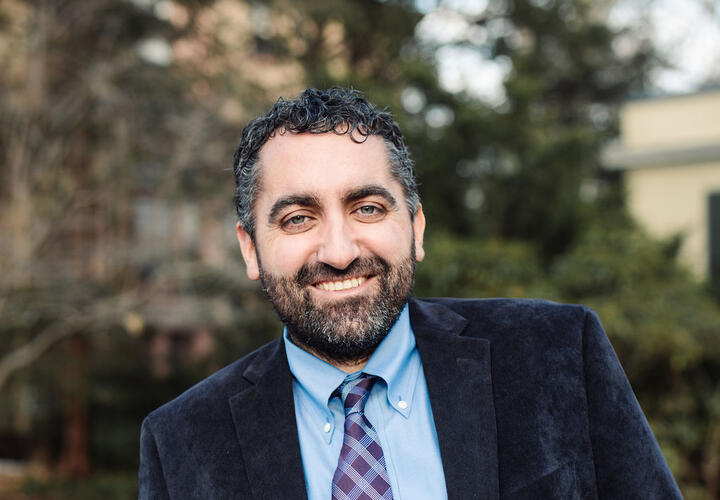Q&A: José-Antonio Espín-Sánchez on using data to understand migration and human capital

Professor José-Antonio Espín-Sánchez is an Assistant Professor of Economics. He came to Yale with a strong background in economic theory and industrial organization and he is currently developing new approaches to the study of climate, inequality, and migration.
How did you become interested in economics and in your particular research focus?
My first year in college I wanted to be an aeronautical engineer, but I took one class in economics and fell in love with the idea that we can apply mathematical rigor to understand human and social behavior. While I began studying economics more on thinking about new models and methods, slowly but surely, my interest drifted towards big historical questions. Why are some countries poor and others are wealthy? What can we do to alleviate the suffering of people in poor countries? I found economic history incredibly interesting and stimulating, while at the same time it can provide answers to today’s problems.
What are you particularly interested about?
I am interested in water and rain, and how it affects rural communities. I also look at inequality and mobility broadly, and the role of women in determining inequality and mobility. More recently I am embarked on a long project with Leticia Arroyo Abad, Associate Profesor of Economics at CUNY, financed by the NSF, on historical migration to the Americas.
Can you tell me a bit more about that?
We are creating the first comprehensive dataset of migrants and slaves to Latin America, from Columbus until the present day. We want to understand the relation between migration and long-term economic development. The diversity in climate and cultures in Latin America resembles a great natural experiment to assess the effect of migration on economic and political institutions and human capital on long-term economic development.
What has been challenging about researching your particular academic interests?
My research combines both new mathematical models and estimation and using historical data from archives. Thus, I have to satisfy two different audiences. Economists who only care about the methods, and think the history is a distraction, and historians who only care about the history, and do not understand or care for the methods.
Migration and slavery had a very important impact on institutions and human capital, key drivers of economic development. By looking at the history of colonial Latin America, we intend to shed light on the process of development over the very long-run, and its relation to human capital and institutions.
In what tangible, everyday ways, can we see the effects of these migrations and developments?
Latin America is a true melting pot of different ethnic groups: native American, European and African. The migration and slave voyages data tell us a more detail picture of the ancestry of all people in the Americas, including the US. Migrants from different regions of Spain travelled to different regions in the Americas in different periods. The same is true of the enslaved people who were forcibly removed from their homes. They were taken from different regions in Africa to different regions in the Americas, in different periods. Regarding economic development, we can see today how regions such as Texas, California, or Chile, enjoy a much higher income per capita than regions like Bolivia or Paraguay. We want to understand why there is such a difference.
EGC’s motto establishes that it supports “the economic advancement of poor and marginalized people in developing countries through innovative research at Yale and around the world.” Could you elaborate more on how it connects to your research?
Yes, we want to understand economic development in the very long term. We think migration and slavery had a very important impact on institutions and human capital, which are key drivers of economic development. By looking at the history of colonial Latin America, we intend to shed light on the process of development over the very long-run, and its relation to human capital and institutions.
Could you tell us a bit more about the upcoming conference that you are co-organizing “The Columbian Shock: Explaining Long-Term Development of the Americas”
The goal of the conference is to kickstart our NSF grant, where we are creating a database with three parts: migrants, slaves and fiscal records. Our goal is to see the effect of migration and slavery on economic development over the short and the long run, using fiscal records as a proxy for economic development. In the conference, we invited a mix of senior researchers who work in Latin American economic development, and junior researchers who use cutting edge data technique to estimate the effects of migration. Our goal is to have a conversation where we can set the agenda for the next decade. The senior historians will tell us what the standing important questions on Latin American economic history are. The junior economists will tell us what new techniques can be applied to answer such questions using the data that we are gathering.
Alan Mendoza is a Graduate Communications Fellow, at the Council on Latin American and Iberian Studies (CLAIS) at the Yale MacMillan Center. This article was first published on the CLAIS website.